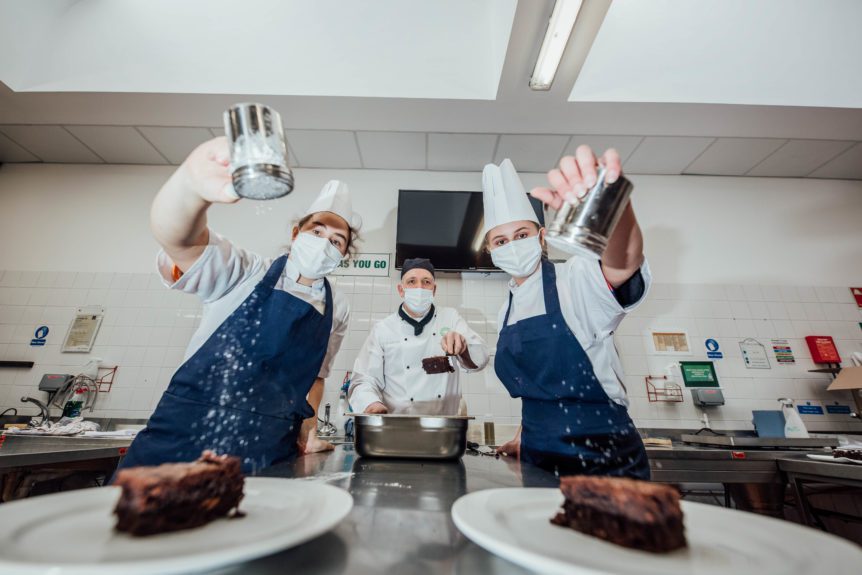A new apprenticeship ‘taster’ scheme for transition years with an interest in the hospitality industry as a career is proving highly popular with students in the region. The initiative, run by the Hospitality Education and Training Centre in Limerick, is aligned with a new national strategy to integrate ‘taster’ vocational courses into second-level education. The National Further Education and Training Strategy published by SOLAS in July highlighted a lack of vocational options in schools as preventing young people from developing interests in the area.
Limerick and Clare Education and Training Board schools are currently participating in two different hospitality taster courses specifically developed for transition years: a junior chef ‘apprenticeship taster’ and a barista skills taster. Running over eight weeks, one day a week, the courses are aimed at students who have an interest in the hospitality sector as a career, or in learning an essential skill for life. Ciara Ní Nualláin is a transition year student at Gaelcholáiste Luimnigh, one of the participating schools. She says: “I’m really enjoying the course and I feel it will benefit me greatly in the future. Not only am I improving my cooking skills but I’m also becoming more confident, independent and creative while thinking on my feet. I would highly recommend this course.”
The Junior Chef ‘Apprenticeship Taster’ course is being run by a team of professional executive chefs from the Hospitality Education and Training Centre and the Panel of Chefs of Ireland. The taster course will culminate in a competition specifically for transition year students – the Shannon Region Junior Chef of the Year 2021. One student will be selected to represent their school in the grand final and will be judged in a professional industrial kitchen by the Panel of Chefs Ireland. Students will choose local fresh produce and cook them in the professional kitchen with an eye on healthy eating, especially food that supports good mental health for life. One of the competition judges is Tom Flavin, Executive Chef, Limerick Strand Hotel. He says: “I’ve seen at first hand the benefits of the apprenticeship system to develop the next generation of chefs. This ‘apprenticeship taster’ course and the Shannon Region Junior Chef of the Year 2021 competition will help to encourage, nurture and mentor second-level students who want to pursue careers in the hospitality industry.”
The Barista Skills Taster is a City & Guilds Level 2 accredited course with transition year students learning all about coffee, as well as gaining invaluable life skills like customer care and effective communication. At the end of the course, students will be able to outline characteristics of different coffee drinks to customers, deal with customer queries effectively, handle and store products and ingredients correctly and safely. Commenting on the initiative, Kevin Ó Raghallaigh, Principal, Gaelcholáiste Luimnigh, said: “This is a fantastic opportunity for our transition year students to develop the key skills required in both culinary techniques and barista training. They are being encouraged to develop their confidence and explore their creative ability, all the while gaining an insight into the hospitality industry.”
The Hospitality Education and Training Centre, operated by Limerick and Clare Education and Training Board’s Further Education and Training Division, is dedicated to providing the highest level of culinary and hospitality training. It has built strong relationships within the Irish hospitality industry since its inception and links its learners directly with employment opportunities. It provides skills training in multiple areas of the hospitality sector. Bernadette Enright, Centre Manager, says: “Our centre is unique in that it delivers specific skills training directed at finding future employment in the hospitality industry. The secret to our success is the collaboration between all the different partners. We are highly industry-focused and continually liaise with the sector to adapt to changing skills needs.”


Share this on...